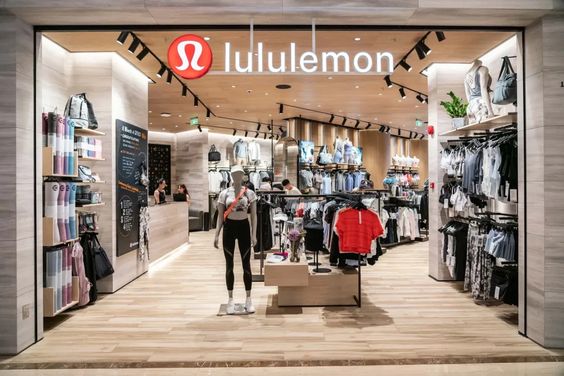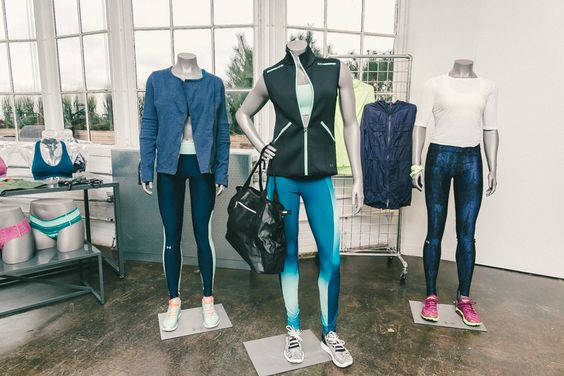Is Lululemon Fast Fashion?
When you think of high-quality athletic wear, Lululemon often comes to mind. Known for its trendy yoga pants and athleisure gear, Lululemon has carved out a significant niche in the activewear market. But amidst the growing conversation around sustainability and ethical fashion, one question looms large: Is Lululemon fast fashion? In this article, we’ll delve into Lululemon’s practices, compare them to fast fashion norms, and evaluate whether they truly fit into this category.
History of Lululemon
Lululemon was founded in 1998 by Chip Wilson in Vancouver, Canada. Initially started as a design studio by day and a yoga studio by night, it soon evolved into a standalone store in 2000. The brand quickly gained popularity for its high-quality yoga pants, which became a staple in many wardrobes. Over the years, Lululemon has expanded globally, opening stores in major cities worldwide and diversifying its product range to include a variety of athletic wear and accessories. Also, read about How to Become a Fashion Stylist
Understanding Fast Fashion
Fast fashion is a term used to describe a business model that replicates high-fashion designs and trends quickly and cheaply. This model allows brands to release new collections frequently, often at the expense of quality and ethical practices. Characteristics of fast fashion include rapid production times, low-cost materials, and a focus on trendy, short-lived garments. Brands like H&M, Zara, and Forever 21 are often cited as prime examples of fast fashion.
Lululemon’s Business Model
Lululemon’s business model is quite different from typical fast fashion brands. Their product design and development process focuses heavily on innovation and quality. Each piece of clothing undergoes rigorous testing and development to ensure it meets the high standards of performance and durability that Lululemon is known for. The brand’s production and supply chain operations are designed to support these values, often resulting in higher-priced products that reflect their commitment to quality.

Product Quality and Durability
One of the key aspects that set Lululemon apart from fast fashion brands is the quality of its products. Lululemon uses high-quality materials such as Luon and Luxtreme, which are proprietary fabrics designed to provide comfort, support, and longevity. The brand also has stringent quality control measures in place to ensure that every product that reaches the customer is free from defects and can withstand rigorous use over time.
Lululemon’s Ethical Practices
Ethical practices are a cornerstone of Lululemon’s brand ethos. The company is committed to fair labor practices, ensuring that all workers in their supply chain are treated ethically and paid fairly. Lululemon also has several environmental initiatives aimed at reducing its carbon footprint, including efforts to minimize waste and use sustainable materials. Transparency is another key element, with the company regularly publishing reports on its sustainability and ethical practices.
Comparing Lululemon with Fast Fashion Brands
When comparing Lululemon to fast fashion brands, several differences stand out. Fast fashion brands are known for their rapid production times and high volumes of products, which are often made from cheap, low-quality materials. In contrast, Lululemon’s production process is slower and more deliberate, focusing on creating high-quality, durable products. The marketing strategies also differ significantly, with Lululemon emphasizing the long-term value and performance of their products rather than short-lived fashion trends.
Consumer Perception of Lululemon
Lululemon enjoys a strong sense of brand loyalty among its customers. Many consumers appreciate the high-quality, durable nature of their products and are willing to pay a premium for them. Customer reviews and feedback often highlight the superior fit, comfort, and longevity of Lululemon products. The brand also has a robust social media presence, which helps to engage and maintain a loyal customer base.
Sustainability Initiatives
Lululemon has made significant strides in sustainability. The company has committed to using sustainable materials, such as recycled polyester and responsibly sourced cotton. They have also implemented waste reduction efforts, including recycling programs and initiatives to minimize production waste. Looking to the future, Lululemon has set ambitious sustainability goals, such as reducing their carbon footprint and increasing the use of sustainable materials in their products. Discover more information dynamichub.ca
Case Studies of Fast Fashion Brands
To understand where Lululemon stands, it’s helpful to look at some examples of fast fashion brands. H&M, for instance, is known for its rapid production cycle and affordable prices. Zara also follows a similar model, releasing new collections frequently to keep up with the latest trends. These brands often face criticism for their environmental and ethical practices, such as poor working conditions in factories and the use of unsustainable materials. In comparison, Lululemon’s practices are more focused on quality and sustainability.
Lululemon’s Market Position
Lululemon occupies a unique position in the market, targeting a demographic that values high-quality, stylish, and functional athletic wear. The brand’s market share has grown significantly over the years, and it continues to be a leader in the athleisure segment. Lululemon’s main competitors include other high-end athletic brands like Nike and Under Armour, but it distinguishes itself through its focus on yoga and lifestyle products.

Impact on the Environment
Every apparel brand has an environmental impact, and Lululemon is no exception. However, the company has taken steps to mitigate this impact through various initiatives. For example, Lululemon has programs in place to reduce water usage, lower greenhouse gas emissions, and promote the use of renewable energy in their operations. Compared to many fast fashion brands, Lululemon’s efforts are more extensive and focused on long-term sustainability.
Social Responsibility
Beyond environmental concerns, Lululemon is also committed to social responsibility. The company engages with communities through various initiatives, such as promoting physical and mental well-being. Lululemon also participates in charitable activities and supports programs that empower people through fitness and wellness. Additionally, the brand places a strong emphasis on employee welfare, offering competitive salaries, benefits, and opportunities for growth.
Future Outlook for Lululemon
Looking ahead, Lululemon appears well-positioned to continue its growth trajectory. The demand for high-quality, stylish athleisure wear is expected to remain strong, and Lululemon’s commitment to innovation and sustainability will likely help it maintain its competitive edge. However, the brand may face challenges, such as increasing competition and the need to continually adapt to changing consumer preferences. Nevertheless, Lululemon’s focus on quality and ethical practices should help it navigate these challenges successfully.
Conclusion
In conclusion, while Lululemon shares some characteristics with fast fashion brands, such as a strong focus on trendy, stylish products, it differs significantly in terms of quality, production practices, and sustainability efforts. Lululemon’s commitment to ethical labor practices, environmental initiatives, and product durability sets it apart from typical fast fashion brands. As consumers become more conscious of the impact of their purchases, Lululemon’s approach to sustainable and high-quality athleisure wear positions it well for continued success. So, is Lululemon fast fashion? Based on the evidence, it’s clear that Lululemon operates in a different league, prioritizing quality and sustainability over the rapid, disposable nature of fast fashion.
FAQs
Is Lululemon considered a luxury brand?
Lululemon is often viewed as a premium brand rather than a luxury brand. It offers high-quality, durable athletic wear that comes with a higher price tag compared to typical fast fashion items, reflecting its commitment to quality and performance.
How does Lululemon ensure ethical labor practices?
Lululemon ensures ethical labor practices by partnering with suppliers who adhere to fair labor standards, conducting regular audits, and maintaining transparency through public reporting on their labor practices.
What makes Lululemon products last longer?
Lululemon products last longer due to the high-quality materials used, such as Luon and Luxtreme fabrics, and the rigorous quality control processes that ensure each item is built to withstand frequent use and washing.
Does Lululemon use sustainable materials?
Yes, Lululemon uses sustainable materials such as recycled polyester and responsibly sourced cotton. The company is continually working to increase the proportion of sustainable materials in its products.
How can consumers support sustainable fashion?
Consumers can support sustainable fashion by choosing to buy from brands that prioritize ethical practices and sustainability, like Lululemon. Additionally, they can reduce waste by buying fewer, higher-quality items and recycling or donating clothing they no longer need.



